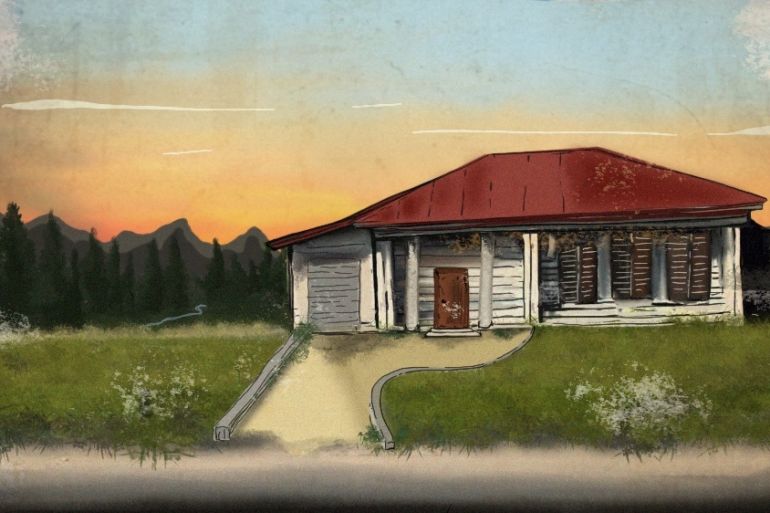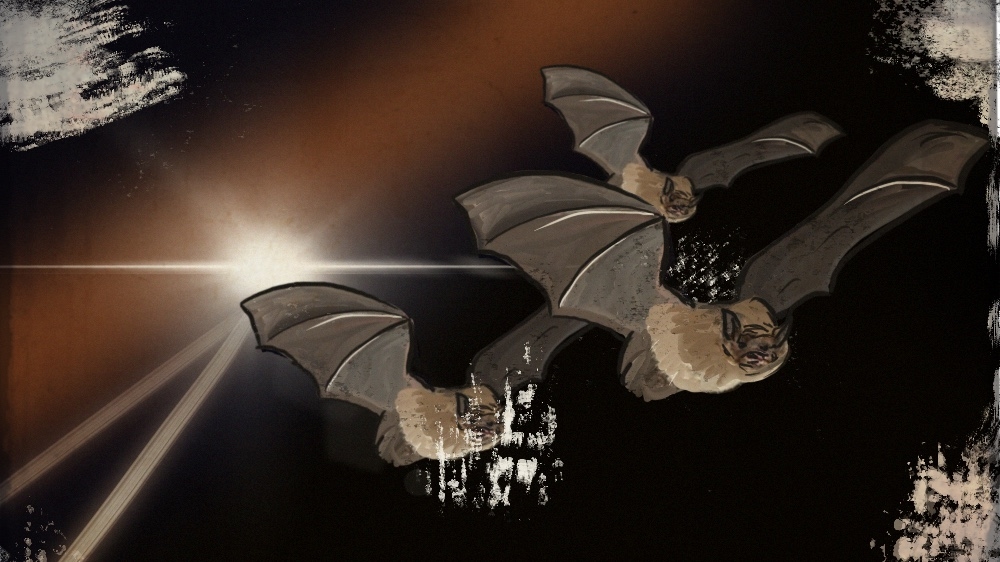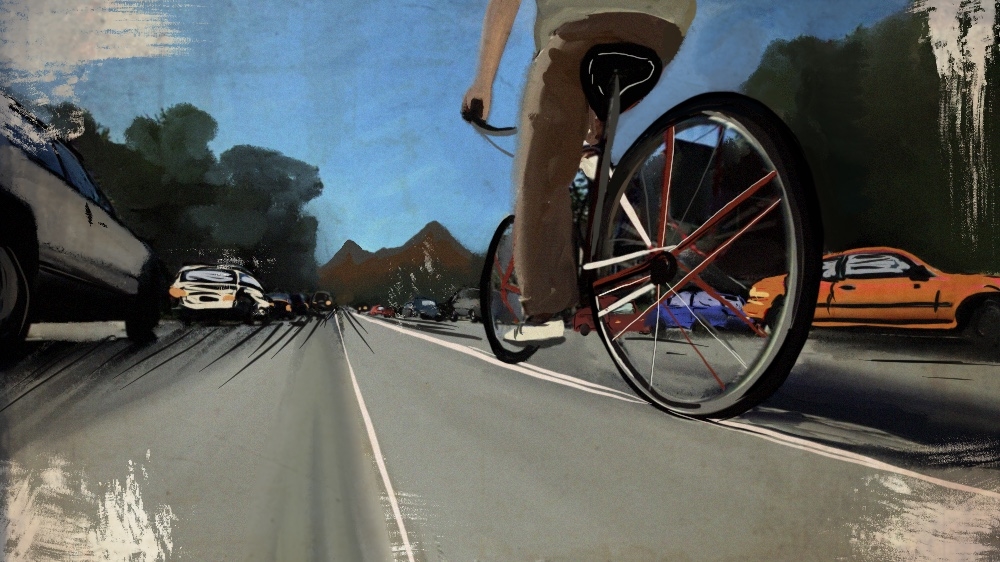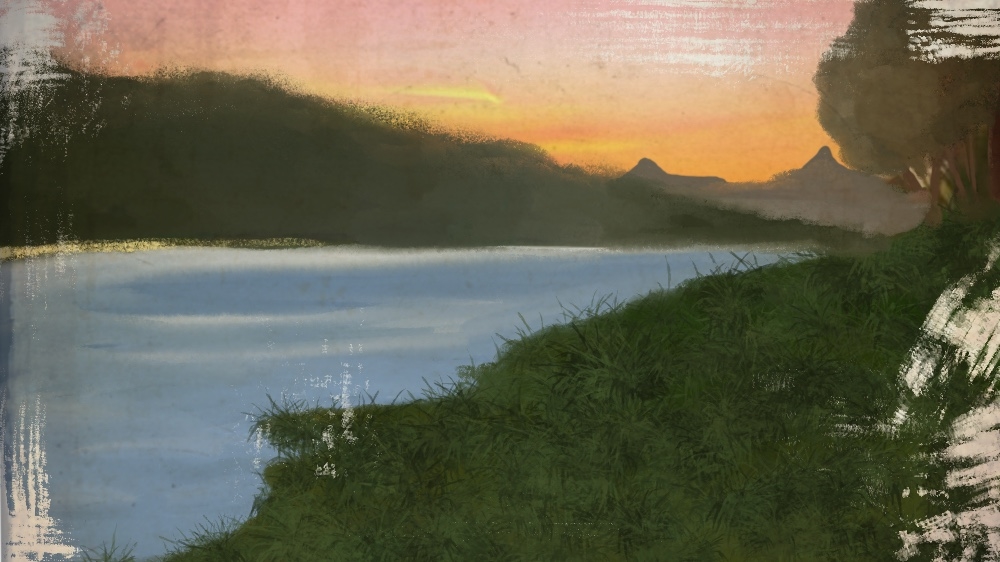The view of a dirty river
A story of friendship, real estate and a disappearance.

The listing talks up the view – rich farmland, snaking river and distant picturesque mountains – but avoids mention of the busy road. The house is vacant now with only a few remnants of the last tenants. This unremarkable facade of a 1950s Cape Cod, and one that was never a beauty, clings to a road that spews an endless tide of traffic, shaking the windows and depositing grime onto the sills. For months the owner has been trying to sell, but only when the price dropped dramatically did I pass it along to one of my investor clients. “It’s just business,” I told myself.
It would have been remiss not to tell them about a good deal.
I have trod the slanted steps and assessed the sagging roofs of sadder houses. After a while all the decrepitude blurs – all those cock-eyed porches, the smell of closed rooms and moldy basements. I have been in houses where the bodies were just removed and ones where the owners left with pots still on the stove and plates in the sink. There were others where in the frenzy of leaving, school books, prescriptions, and wedding portraits fell to the wayside. It is part of the business of real estate to enter properties where things have gone awry.
Selling a house may represent a step up – or the loss of a dream. And you can diagnose the dying dreams through a kind of forensic analysis: too much money spent on that granite countertop and not enough on securing the roof. Prescription bottles, bills piled high, beer cans under the sink, one side of the closet emptied while the other half still bursts with clothing. You can keep these things at a distance, unless you happen to know the story more intimately. Most house showings are impromptu performances where you venture into a new space and put the pieces together, but I know this place and its story isn’t an unfamiliar narrative.
Having made the appointment, I suddenly became tired – the kind of tired that is too heavy and too sudden to really be about fatigue. And in the hours between making the plan and arriving at the door, I run through all the times I have driven by this house in the last two years and how each time it bothered me to see those empty windows and the blank vinyl visage. How I saw that dumpster outside for weeks packed full of possessions that no one cared to sort through. And how the rain rained on it all. And then the snow blanketed it, until one day the dumpster was gone.

This is the house where Rat lived. One day three summers ago, Rat swaggered out from behind a tree as I sat with my dog watching the ripples of the river. He introduced himself to me as “Nick”, but in time I learned that his relatives and the authorities called him by his given name, “Nacom”, which designates the Mayan priests of blood sacrifice. I suspect his parents did not know that when they named him. I called him a sweeter name because he made me think of the book The Wind in the Willows, and like Rat and Mole, we were river friends. He was a river rat and I was a more homebound creature.
“I’m a pirate,” he boasted that first day. And with his unsteady gait that made one feel like the sea was moving under him and his dark skin and swashbuckling air, it did seem possible he could climb a mast with a dagger between his teeth. “I’m retired,” he said later, popping open another Coors. But it was clear that things might be a bit more precarious than that: pirates don’t get 401(k)s, and our river is pretty far from the sea.
In truth, he was fighting his second DWI charge. “Entrapment,” he insisted. He did not want to cop a plea to a felony, but most of all, he did not want to go to jail. So he had a summer of limbo to watch the river as he listened to songs about not growing up to be cowboys and turning 21 in prison, all the while rolling cigarettes and running up his credit card bills as the slow wheels of justice decided his fate.
When we first met, we talked for three days straight. Rat’s charms and quick wit could only be appreciated if you did not take him seriously. He wanted to find out my weakness and he wanted to play with it. His method was to ask lots of pointed questions and then to look for the holes in the story or to take pieces of your narrative and misconstrue them. It wasn’t meanness on his part, although enough liquor could make it so, like when he told me he hated me, but loved my dogs. Mostly he looked at people as if he were an alien trying to figure out how the parts fit together. And having lived through a thousand years of therapy to render me immune to questions and living in a new place with not that many friends, I had no problem providing him with puzzle pieces to play with.

At the time when I am scheduled, I pull into the driveway in front of the house. Most of the time I spent at Rat’s place was spent waiting for him right here. I would pick him up and drop him off, but mostly he stayed at my house.
First he occupied my guest room, and later my much less comfortable unfinished attic. Retreating gradually from being a part of the main business of my life, he seemed to have realised that by making his footprint smaller he would be able to stay longer.
Once I dropped him here after running out of patience and he said, “Your shift is done.”
The trees Rat planted between the house and the road during our second summer as friends, the summer of his sobriety, are gone now.
During that first spate of energy after giving up the demon alcohol, he also installed some motion sensor lights that he claimed the bats were deliberately tripping. He made me watch with him. I wasn’t certain the bats had figured out that the lights would draw insects, but he believed they had, and he delighted in watching them trick the system.

You can’t really talk about Rat without talking about the drinking, even though for the second half of our friendship he didn’t drink at all. But during that first summer that we spent by the river, not the slow dying river near his house but a quicker cleaner one near my mine, he drank prodigiously.
He would bike a few miles from his house on the busy road and stop off at the Citgo where he would engage in cheerful jousting with store owners (usually accusing them of having shorted him on beer the day before).
He had a particular method for packing many tallboy Coors beers (12) into one normal-sized backpack, after which he would bike up another hill on the winding road that traces the curves of my river on one side and on the other passes by the defunct cement mines with their gaping mouths all open and black, their breath always the same temperature – a chill in summer and a warm spot in winter.
As I enter that living room, I can see no evidence left of the enormous pile of shoes and boots. Rat liked stuff. He liked climbing equipment and hiking equipment, kayaks, cameras, knives, guns, and all manner of tools of unknown purpose. But none of that has remained – not even the coffee table on which sat his suicide notes (there were two because he made mistakes in the first draft and so rewrote it). I realise that I never saw any living going on in this room. It was more like a drab waiting room, stocked only with conspiracy magazines and tool catalogues.
And I was the only person who ever waited there.

It has been 18 months since I set foot in this house.
I hadn’t spoken to Rat since the beginning of December, and at the end of January, his sister called to ask me if I knew where he was. It was just darkening on a cold night and I drove straight to this place. The heat was off and there was a chill deep in every room that I walked through to get to his room. I didn’t see the envelope that had already been lying untouched on the coffee table for six weeks. And once I got upstairs I found a room colder still than the rest of the house. Like the centre of a tomb.
Nestled behind the living room is the room that had he rented out to students until his father got kicked out of the nursing home for some crazy misdeed, and Rat let him take that space. The carpets are pulled up now and there are empty paint cans and half-used construction materials as if someone tried to make it comfortable and just gave up.
After his father came, replete with his turquoise jewellery and faux Native American belt buckles – like he shopped at the cut-rate version of Visionary Wannabes R Us – the other two bedrooms stayed empty. “I can’t subject anyone to him,” Rat said.
His father didn’t notice Rat was gone until he woke up one morning to find the oil was gone.
It was the police who found the notes and the detailed instructions on how to take care of the utility bills and money to pay them. Rat’s mistake was thinking that his absence would be noticed and that his words would be read.
He was sitting here in this room when he made that last call. Maybe he was smoking a cigarette on the deck and looking out towards the river. The leaves were off the trees by then and perhaps he could have glimpsed the setting sun reflecting on the dirty river.
Maybe he saw that as he told me about how the mandatory drugs test, a condition of probation, had come back dirty. Maybe he already knew what he was going to do when I told him he had to fight it. But he didn’t want to fight anymore; he had resigned himself to the ending he had probably expected all along.
I would say he’d fought the law and the law won, but he had stopped fighting. He was just trying to comply. Freaking out when they came with their hands on their guns to check up on him. Afraid that sesame seeds in Chinese food might trigger a false positive. The law had come to occupy every room of his brain. It was more like the law fought him and the law won.

Outside, on the back patio, is where he put the guns. He wasn’t supposed to have guns and some of them he told me weren’t legal anyway. I watched him swaddle them carefully and place them in a locked container that is still right here.
He gave me the only ones I could take – the .22 rifles and air guns – and retained the AR-15s and other heavy artillery. He was a country boy and he owned many, many guns. His brother made guns. He had mocked me for not knowing about firearms and had taken me north to the farm his mother had owned before she died. There, he taught me how to hit a target with a small rifle.
It is a mystery now what happened to those guns because other than the empty case for the handgun he took, there is no trace of any others.

The river he might have looked out over when we last spoke is a dirty river known for its dirtiness. That is why he always came to my cleaner river. Rivers are by nature always a little suspect; they travel through the country picking up impurities along the way. Agricultural waste or chemicals or sewage runoff – his river had it all and so we rarely went there.
One of the times we did was when I was angry about something he had done (I believe it was the time he drunkenly and outrageously insulted a friend of mine from college and her boyfriend). To distract me from my anger or because he didn’t really understand it or care, he pronounced, “I would have been a great dad.”
This being one of the most absurd things he had ever said, I disagreed and while he went into a soliloquy about his hypothetical parenting skills, I drifted off into river-induced reverie. I saw, in my mind’s eye, a deer skull. As he spoke, I dropped my gaze to the dirt at my feet and glimpsed a little patch of white showing through the dirt. When I touched it and the dirt fell away, it was a deer skull. Just like the one I had been thinking of, dirty Wallkill running lazily by.
Periodically I, being the one who reported him missing, am summoned by the police. There have been three detectives so far assigned to the case and the manila folders they diligently fill with their evidence grow fatter each time I go to that little room to discuss developments.
There are no developments and still no body.
As one detective said, “You are the only one who seems to know anything.”
I have told them that I am positive that Rat walked from his house to the caves behind mine. My neighbour saw him that last day with a backpack and a crazy smile. These cavernous and disused borings from mines haven’t operated in decades, but there are hundreds of acres of them like an enormous ant farm, with about 25 percent of them now underwater. I believe that is where he was headed with his gun. And I believe he achieved something next to impossible for the less crafty – he managed to pass into death without witnesses to any of it.
The cops ask me questions. “Did he have enemies?” they ask. “Were there people who might want to cause him harm?” They show me their enormous pile of manila folders, and they seem desperate for a lead. But there aren’t any.

As I drive away, I think I will probably never be here again. And I go home to my comfortable house perched over the other less toxic river. It has been nearly two years and I can go sit and watch the ripples now without feeling each eddy as a loss. And I can go past the caverns without thinking of his body in their depths. Sadness, like rivers, takes an ever-changing path.